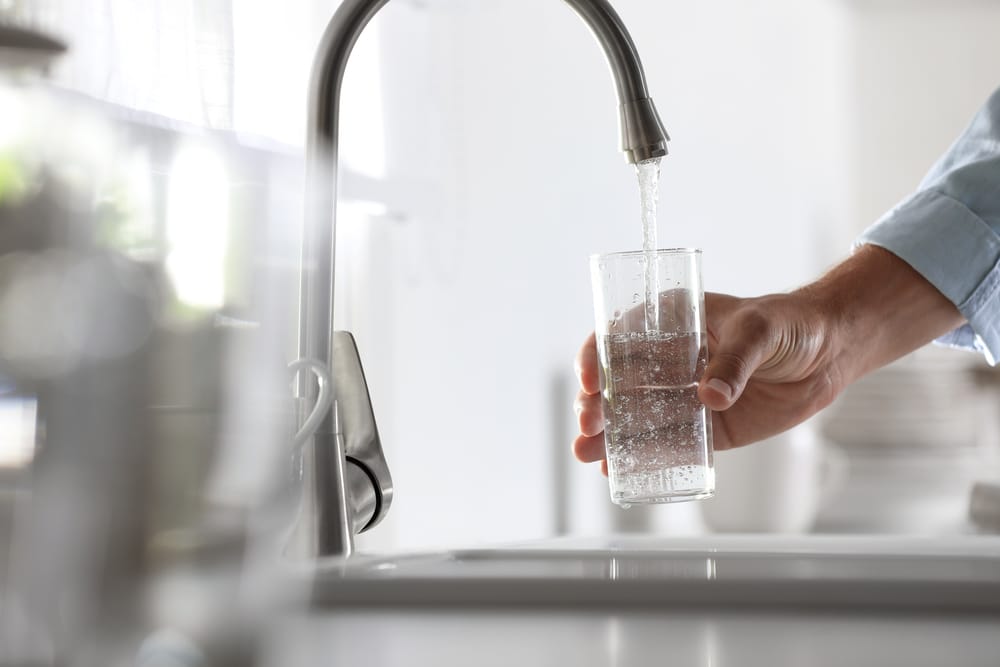
By Dr. Josh Redd, Chiropractic Physician, RedRiver Health and Wellness Center
Although our home drinking water is sanitized to prevent disease, you should still filter it for truly healthy water. While treating tap water prevents disease from pathogens such Cryptosporidium and Giardia, it still contains abundant treatment chemicals and environmental pollutants.
Chlorine and chloramine are the two treatments used to treat drinking water. Chlorine is the most commonly used. Chloramine, which combines chlorine with ammonia, is not as common. Unlike chlorine, chloramine stays in the water longer and cannot be removed through boiling, distilling, or letting water sit uncovered.
Both chemicals kill organisms that cause diseases, but both are toxic in themselves, especially chloramine. It corrodes pipes, increasing the lead exposure in older homes. Chloramine-treated water should not be used in fish tanks, hydroponics, home brewing, or for dialysis.
Although chlorine and chloramine prevent water-borne diseases, they unfortunately create carcinogenic compounds by reacting with organic particles ordinarily found in water.
In fact, they create byproducts that are more toxic than the either chemical alone. Studies have demonstrated that they cause cancer in lab animals, trigger inflammation, irritate the skin and mucus membranes, negatively affect the nervous system, and are associated with birth defects. It’s believed the thousands of bladder cancer cases annually are a result of chlorine and chloramine toxic byproducts.
But wait, there’s more. Not only are chlorine and chloramine a problem, so are the thousands of unregulated pollutants that reach our water supplies from the environmental contamination. It’s estimated more than 100,000 industrial chemicals and heavy metals get into our water supplies, coming from car exhaust, pollution, farming, and industrial waste.
Pollution also comes from human waste in the way of pharmaceutical drugs. So far researchers have found traces of almost 40 different pharmaceutical drugs in public water supplies. No regulation on pharmaceutical drugs in tap water exists, which experts say could cause health problems when they accumulate in people’s bodies or interact with medications they take. Drinking water could even contribute to antibiotic resistance.
You may think the solution is to drink bottled water, but the plastic is another source of health-disrupting toxins. Plastic bottles leech hormone-disrupting and carcinogenic BPA chemicals into the water. BPA is linked to numerous health disorders, including thyroid autoimmunity. Plastic water bottles also create serious pollution, particularly of our oceans.
The best way to ensure your water is clean and safe is to filter it with a high-quality water filter. This will greatly reduce your exposure to industrial chemicals, their byproducts, and drugs. Look for a heavy-duty carbon filter that removes particles 0.8 microns or under. Check with your city to find out if your water has chloramine, and if so, use a filter designed to remove it.
You may also want to filter your bath and shower water as our skin is very permeable. Whole-house filters are also a good option for this. People who filter their shower water report softer skin and shinier hair.
Even if you shop for only organic foods, filter your drinking water, clean your home with natural cleaners, and only use non-toxic body products, the sad truth is you are still exposed to many toxins simply for being part of the modern world.
Thankfully, there are ways to facilitate the removal of these toxins from our bodies and protect our cells from damage from them.
The anti-inflammatory diet
One reason toxins are problematic is because they can promote inflammation. You can help relieve some of the burden on your body by following an anti-inflammatory diet. The toxins in the air, water, and soil still contaminate our food supply, even organic food. You can lighten the load by choosing organic food as possible, and eating meats only from pastured and grass-fed animals that are not given antibiotics.
Keeping your blood sugar stable can also help minimize inflammation, as blood sugar highs and lows over activate the immune system. This means avoiding sugars and foods that are high in processed carbohydrates. Also, don’t go so long without eating that you crash from low blood sugar and don’t overeat or eat so many carbs that you feel sleepy after eating.
Another important aspect of an anti-inflammatory diet is to avoid foods that trigger an immune response, the most common being gluten and dairy. If you are sensitive to these foods and keep eating them, this keeps your immune system on red alert all the time, creating inflammation throughout your body. Soy, egg, and corn are other commonly inflammatory foods, along with foods in the nightshade and lectin categories.
Resveratrol and curcumin are two supplements that can help protect you from toxins, particularly if you take them together in a liposomal form.
Another powerful supplement is liposomal glutathione or another absorbable form. Having enough glutathione will protect you from developing chemical sensitivities. You can also raise your body’s glutathione levels with n-acetyl-cysteine, cordyceps, Gotu Kola, milk thistle, L-glutamine, and alpha lipoic acid.
Also, ask my office about certain supplements that can also tame and reduce inflammation.

